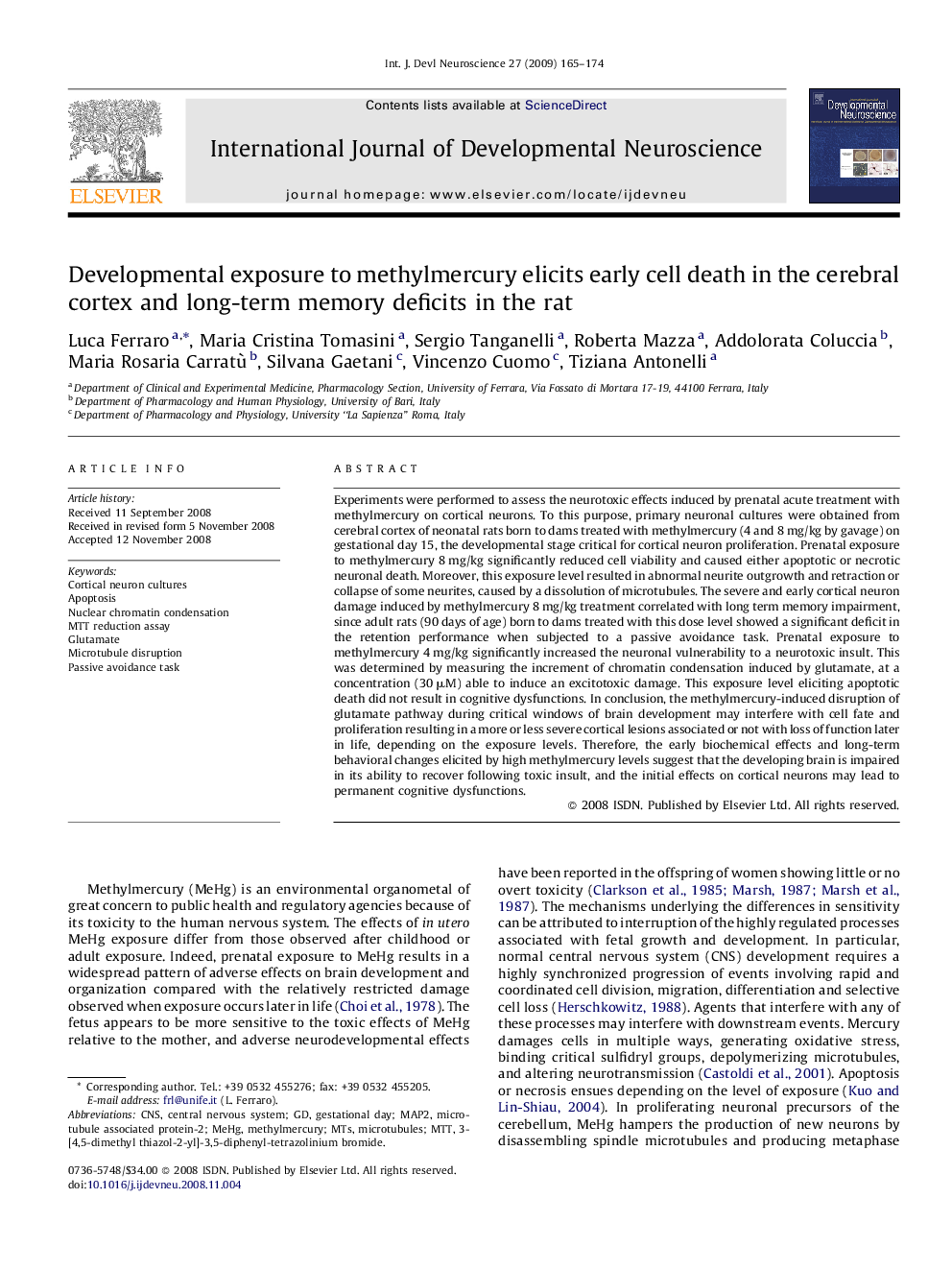| Article ID | Journal | Published Year | Pages | File Type |
|---|---|---|---|---|
| 2786441 | International Journal of Developmental Neuroscience | 2009 | 10 Pages |
Experiments were performed to assess the neurotoxic effects induced by prenatal acute treatment with methylmercury on cortical neurons. To this purpose, primary neuronal cultures were obtained from cerebral cortex of neonatal rats born to dams treated with methylmercury (4 and 8 mg/kg by gavage) on gestational day 15, the developmental stage critical for cortical neuron proliferation. Prenatal exposure to methylmercury 8 mg/kg significantly reduced cell viability and caused either apoptotic or necrotic neuronal death. Moreover, this exposure level resulted in abnormal neurite outgrowth and retraction or collapse of some neurites, caused by a dissolution of microtubules. The severe and early cortical neuron damage induced by methylmercury 8 mg/kg treatment correlated with long term memory impairment, since adult rats (90 days of age) born to dams treated with this dose level showed a significant deficit in the retention performance when subjected to a passive avoidance task. Prenatal exposure to methylmercury 4 mg/kg significantly increased the neuronal vulnerability to a neurotoxic insult. This was determined by measuring the increment of chromatin condensation induced by glutamate, at a concentration (30 μM) able to induce an excitotoxic damage. This exposure level eliciting apoptotic death did not result in cognitive dysfunctions. In conclusion, the methylmercury-induced disruption of glutamate pathway during critical windows of brain development may interfere with cell fate and proliferation resulting in a more or less severe cortical lesions associated or not with loss of function later in life, depending on the exposure levels. Therefore, the early biochemical effects and long-term behavioral changes elicited by high methylmercury levels suggest that the developing brain is impaired in its ability to recover following toxic insult, and the initial effects on cortical neurons may lead to permanent cognitive dysfunctions.
